My close call with lightning on Mt. Whitney
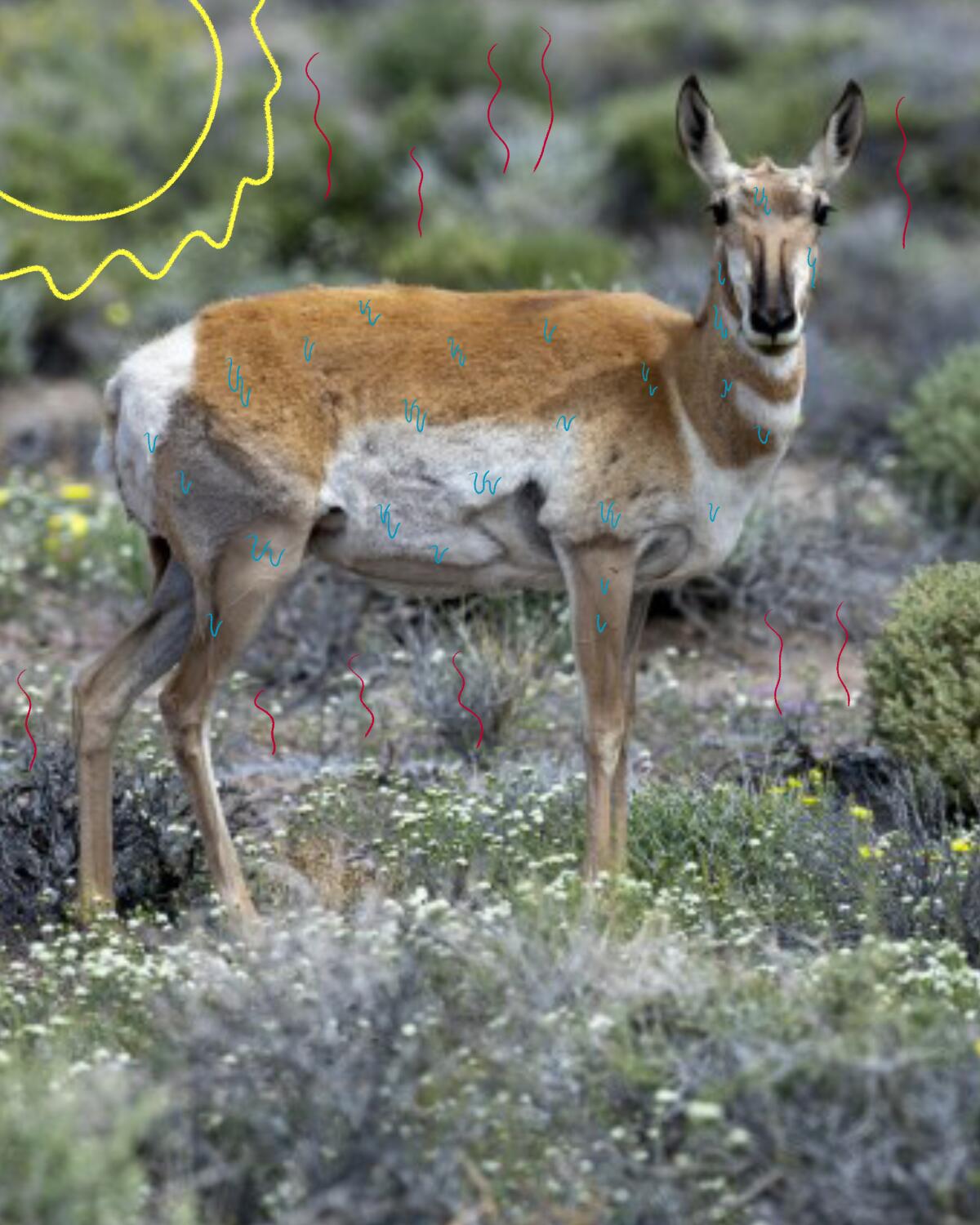
By Mary Forgione
Design and illustrations by Micah Fluellen
Sign up here to get The Wild sent weekly to your inbox.
Death Valley may have made history on Sunday when the thermometer reached a sizzling 130 degrees, the hottest recorded temperature on Earth in almost 90 years. I was more excited by something that happened last spring.
Pronghorn antelope — the kind that “play” with deer in “Home on the Range” — showed up in Death Valley in April. And it’s a bit of a mystery why. “More than a century after railroads, ranchers and hunters vanquished their ancestors, pronghorn antelope are returning to this unforgiving expanse of desert along the California-Nevada border,” L.A. Times staff writer Louis Sahagun reports.
A male and five does were sighted in the national park. How long will they stay? “The Mojave is a tough place for pronghorn in summer,” Kathleen Longshore, a research biologist with the U.S. Geological Survey, said recently. Still, it’s exciting to see a species rebound in such a harsh habitat. Read the full story here.
3 things to do this week

1. Visit penguins inside their Long Beach home. The penguins at the Aquarium of the Pacific have names such as Admiral Fancy Pants and Ludwig. If you forget who’s who, you’ll find an ID tag on their wings. The Magellanic penguins, which are native to South America, as well as moon jellyfish, seals, sea lions and sharks, are among the outdoor exhibits open at the aquarium ($15 per person). If you crave more face time with penguins, you can meet the big birds one-on-one for half an hour before the aquarium opens (up to four people in the same household, $150 per person). The aquarium’s outdoor exhibits are open daily. Info: aquariumofpacific.org
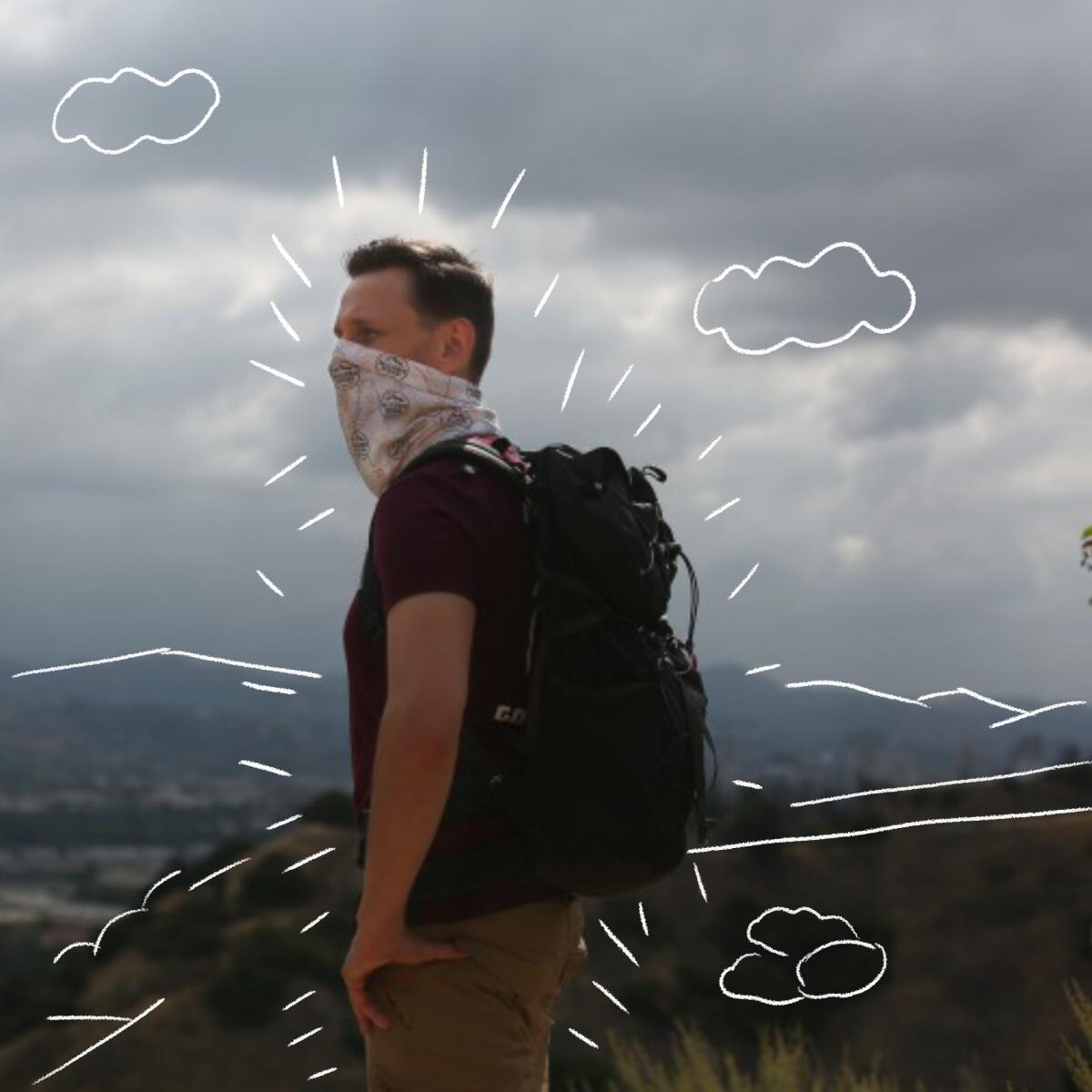
2. Hike a new trail in Griffith Park. Los Angeles could use more green space. It ranks 49th out of 100 cities in the U.S. in access to and quality of parks, according to the Trust for Public Lands, which keeps an eye on how well cities see to the outdoor needs of their residents. Enter 4,300-acre Griffith Park, a vintage wild place that’s drawing more and more Angelenos as the coronavirus pandemic drags on. Now there’s a new guide with 33 routes to explore. The L.A. Times hit the trail with Casey Schreiner, a.k.a. Modern Hiker, who shares his favorite routes in “Discovering Griffith Park: A Local’s Guide.” Read the full story here.
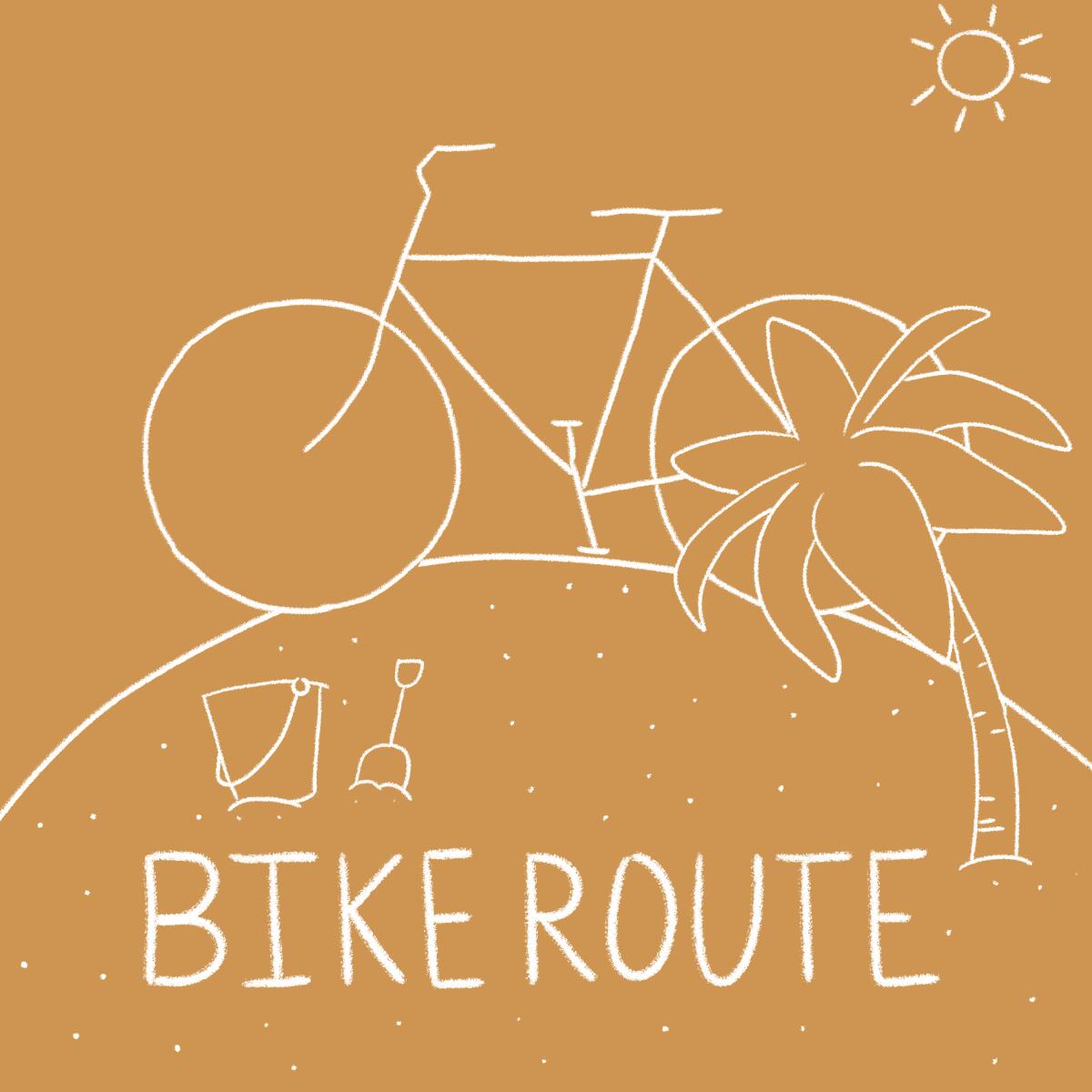
3. Take a bike ride from the South Bay to Pacific Palisades. The 22-mile bike path along Southern California’s scenic coastline runs between Will Rogers State Beach in Pacific Palisades and Torrance County Beach in Torrance. And yes, it’s open. L.A. Times staff writer Christopher Reynolds explains why there may be confusion about the scenic route that’s an ideal go-to for these difficult times. To avoid crowds, go midweek and early in the morning. Bring your mask and let the ocean views soothe your pandemic-jangled nerves.
The red flag
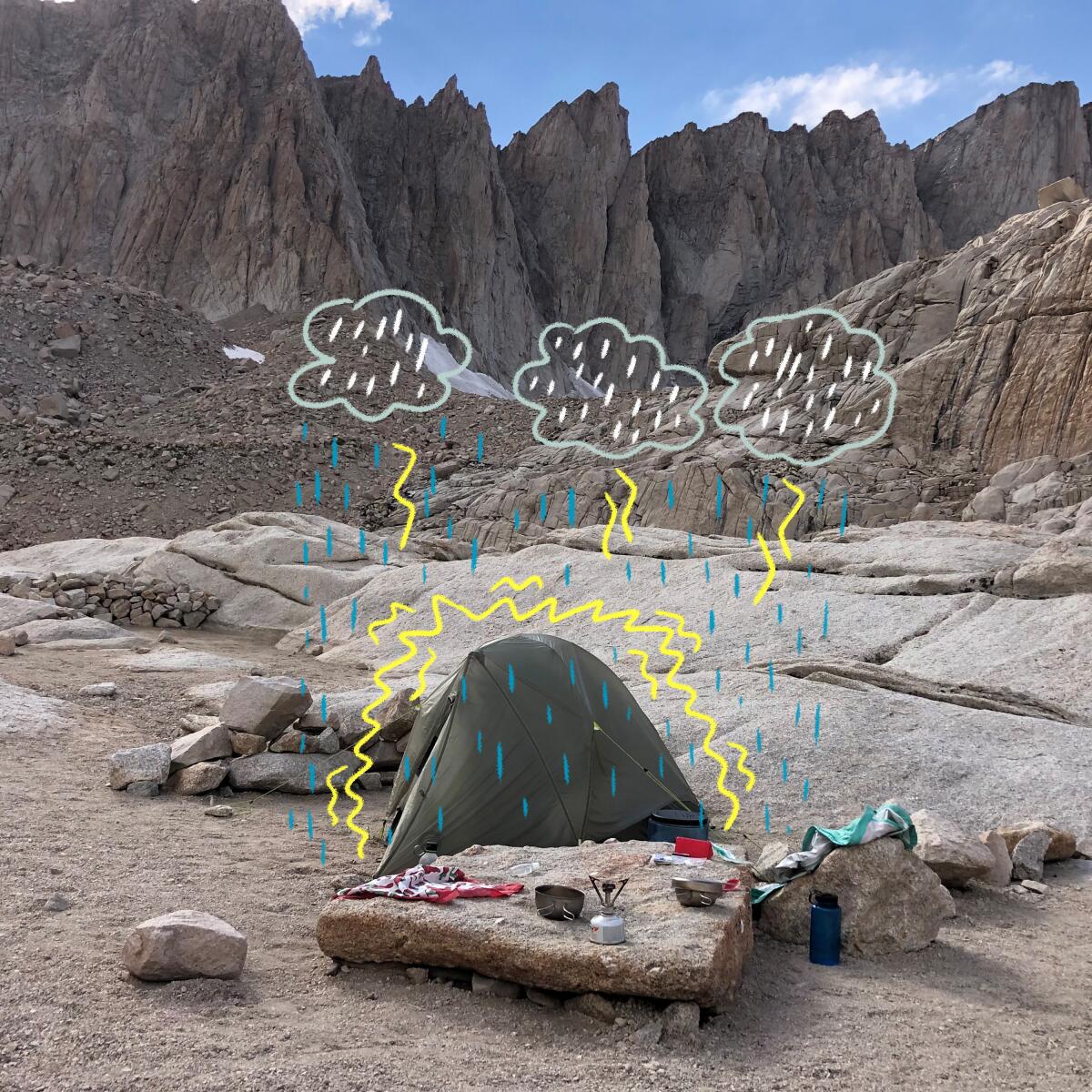
On Saturday, I enjoyed a gorgeous sunny morning at 14,495 feet atop Mt. Whitney. It wasn’t until I descended a few thousand feet to my tent that things started to go sideways. It began to hail, which turned into pounding, pooling, monsoon-like rain. But it was the lightning and thunder that made me bristle — for good reason.
Thirty years ago, the L.A. Times published a harrowing account of several hikers struck by lightning while caught in a storm atop Whitney. One died; others such as James MacLeod of Long Beach, who was 24, had to be resuscitated after a jolt. “Every article of clothing I have has holes in it, except my shoes,” he said at the time.
Back to Saturday. I had checked weather forecasts a few days earlier when I started my trip. They showed a 20% chance of thunderstorms, which didn’t worry me.
On my way to the peak, I had snapped a photo of the warning sign about “extreme danger from lightning.” I called up the image on my phone as rain pounded my tent: “To avoid being struck by lightning, immediately leave the area if ... there are dark clouds, nearby thunder, hail or rain.” Make that all of the above.
Whitney, the highest peak in the Lower 48 states, is in the Inyo National Forest. Its website warns hikers caught in a storm to “avoid mountaintops or ridges, open areas, a lone tree, shallow caves, and the base or edge of cliffs.” If you’re stuck in the open, lay something on the ground to insulate yourself, maybe a foam sleeping pad or a poncho. Stay at least 100 feet from your metal-frame backpack and hiking poles, adds the American Hiking Society‘s website. Then crouch down and hug your knees to wait out the storm. “This method should be used only if there are no alternatives,” the Inyo Forest’s website says.
Thankfully, I had an alternative. I waited for a little break in the weather, put on my rain jacket and pants, and laced up my soggy boots. I took down my tent, packed up as quickly as I could and flew the six miles down the mountain. I share this not as an adventure tale but as a cautionary one. If you’re going to high-elevation areas during these late-summer days, read Adventure Forecast’s safety guide to hiking in lightning-prone areas. It includes photos of what scary skies look like.
Social moment
Who doesn’t want to escape into a Zoom-free world where everything looks rather dreamy? L.A. Times audience engagement editor Rachel Schnalzer takes you there in her story about “cottagecore, a sunny corner of the internet where you can immerse yourself in an idealized, rose-tinted version of country living,” she writes. “Think Taylor Swift posing among the brambles in her latest album art, the Weasley family’s shabby-chic home and gnome-infested garden in the ‘Harry Potter’ series and, of course, ‘Little House on the Prairie’ (minus the grasshopper plague that destroys Pa’s harvest).” Nature stars in many of the Insta posts, but only as a backdrop to the floppy-hat-and-sundress-wearing women who have a penchant for posing.
Cool gear
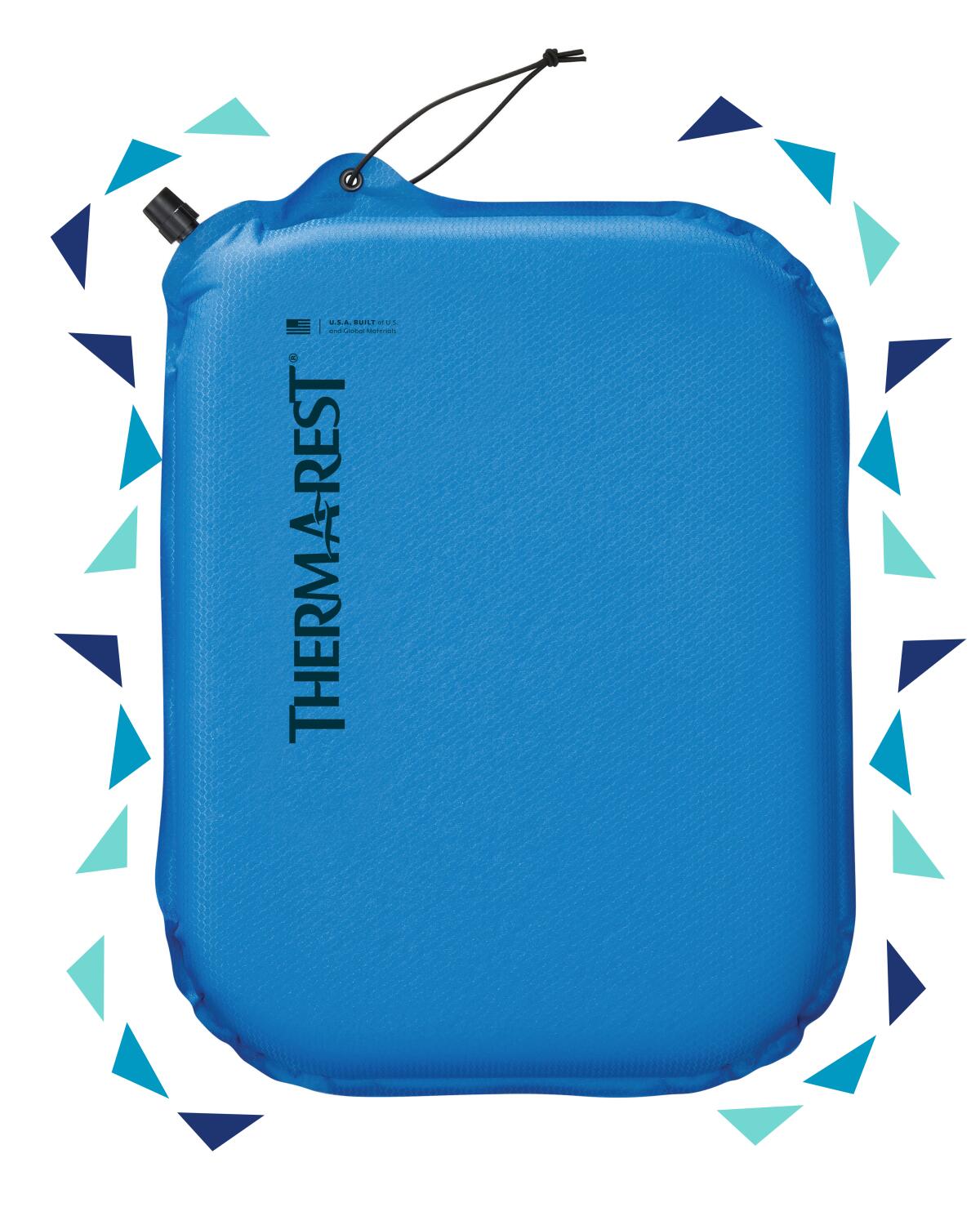
There’s nothing like taking a break when you’re on a tough hike, but where’s the best place to park your posterior? If you have a good seat pad, it doesn’t matter. Over the years, I’ve skimped on different types, and even tried cheap garden kneelers, before shelling out for a decent pad. Glad I did. The Thermarest Lite Seat seems to smooth out the pointy edges on rocks and keeps me dry at a creekside perch. It’s lightweight and cushy, with just a little bit of inflating needed. Shop around; I found it for $24.95 at Thermarest’s website and less than $20 at other online stores.
Insider tip
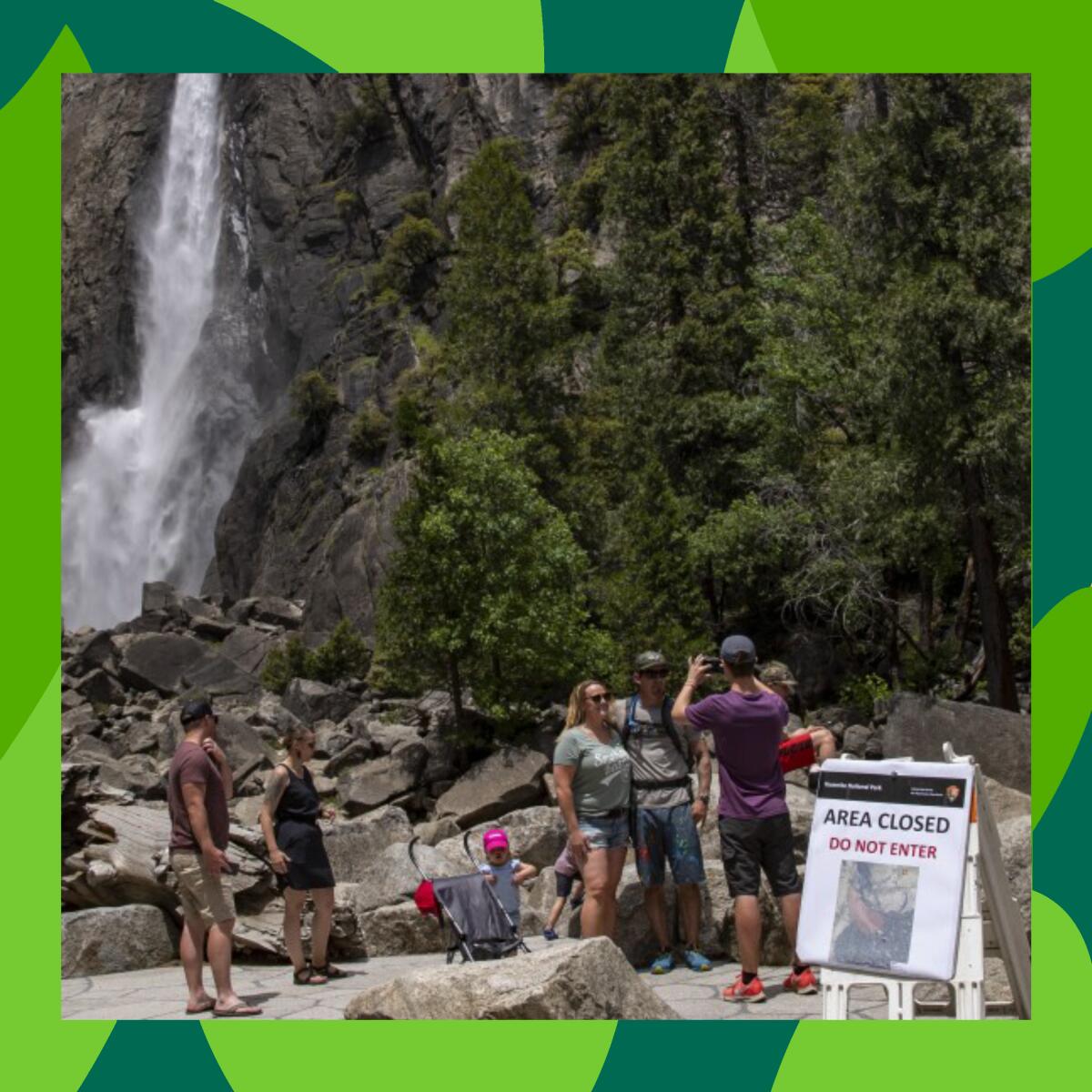
Miss Yosemite? We all do. Here’s a hack that could help those who don’t want to miss out. The park partly reopened in June by limiting day visitors to those who make a reservation at recreation.gov. What you may not know is that your reservation — the $35 entrance fee, just as in prepandemic times — is good for seven consecutive days. That means you can grab a campsite outside the park and drive in each day, no additional reservations needed.
The reservation process takes some explanation; Yosemite’s website gives step-by-step instructions. Why the hack? Camping inside the park is very limited. Most developed campgrounds, except for half the sites at Upper Pines Campground and Wawona Horse Camp, are closed at least through Labor Day weekend. However, back-country camping is allowed, provided you have a permit.
Send us your thoughts
What do you think? Keep the comments coming. Share anything that’s on your mind. The Wild is written for you and delivered to your inbox for free. Drop us a line at [email protected].
Click here to view the web version of this newsletter and share with others. I’m Mary Forgione and I write The Wild. I’ve been exploring trails and open spaces in Southern California for four decades.

Sign up for The Wild
We’ll help you find the best places to hike, bike and run, as well as the perfect silent spots for meditation and yoga.
You may occasionally receive promotional content from the Los Angeles Times.




